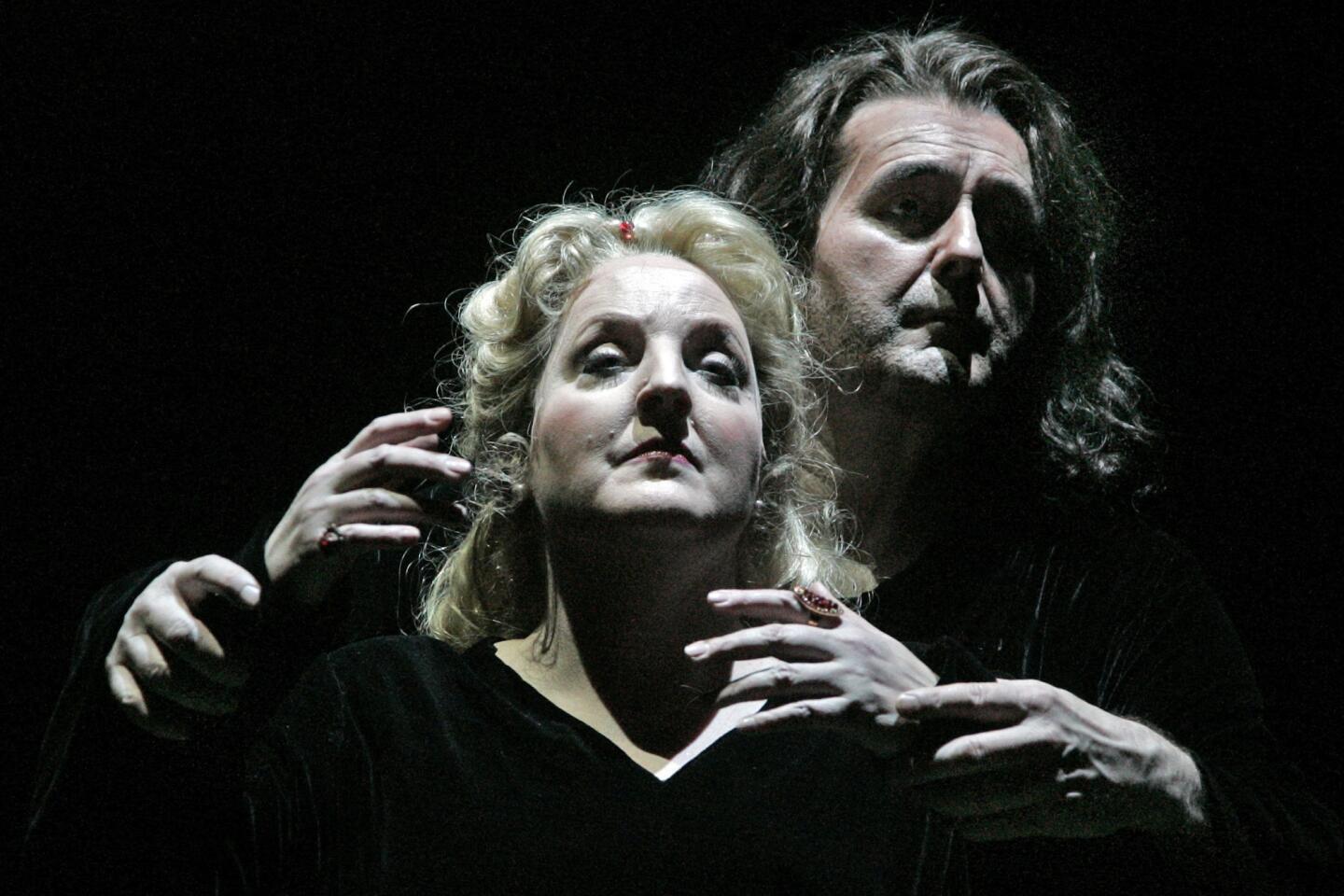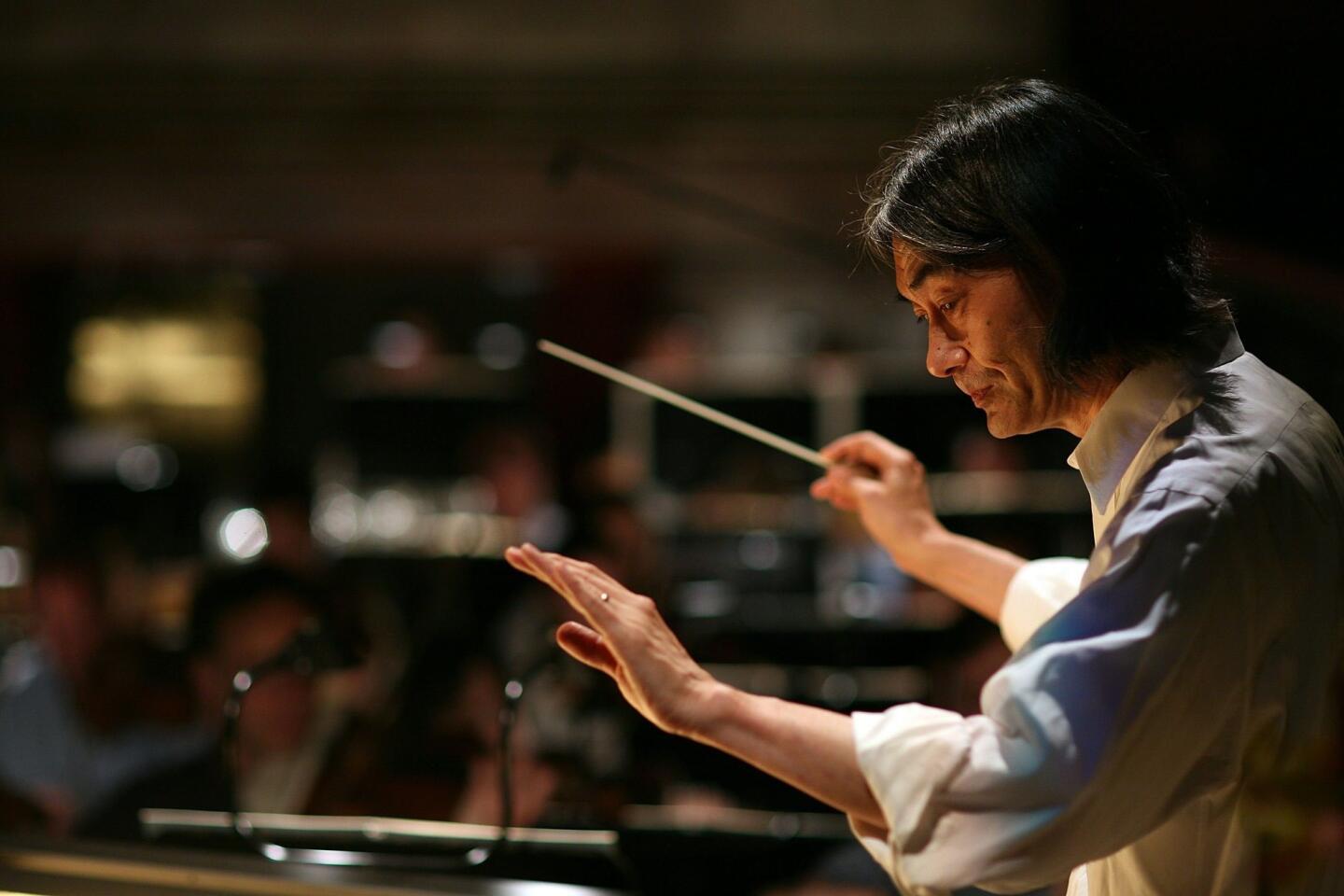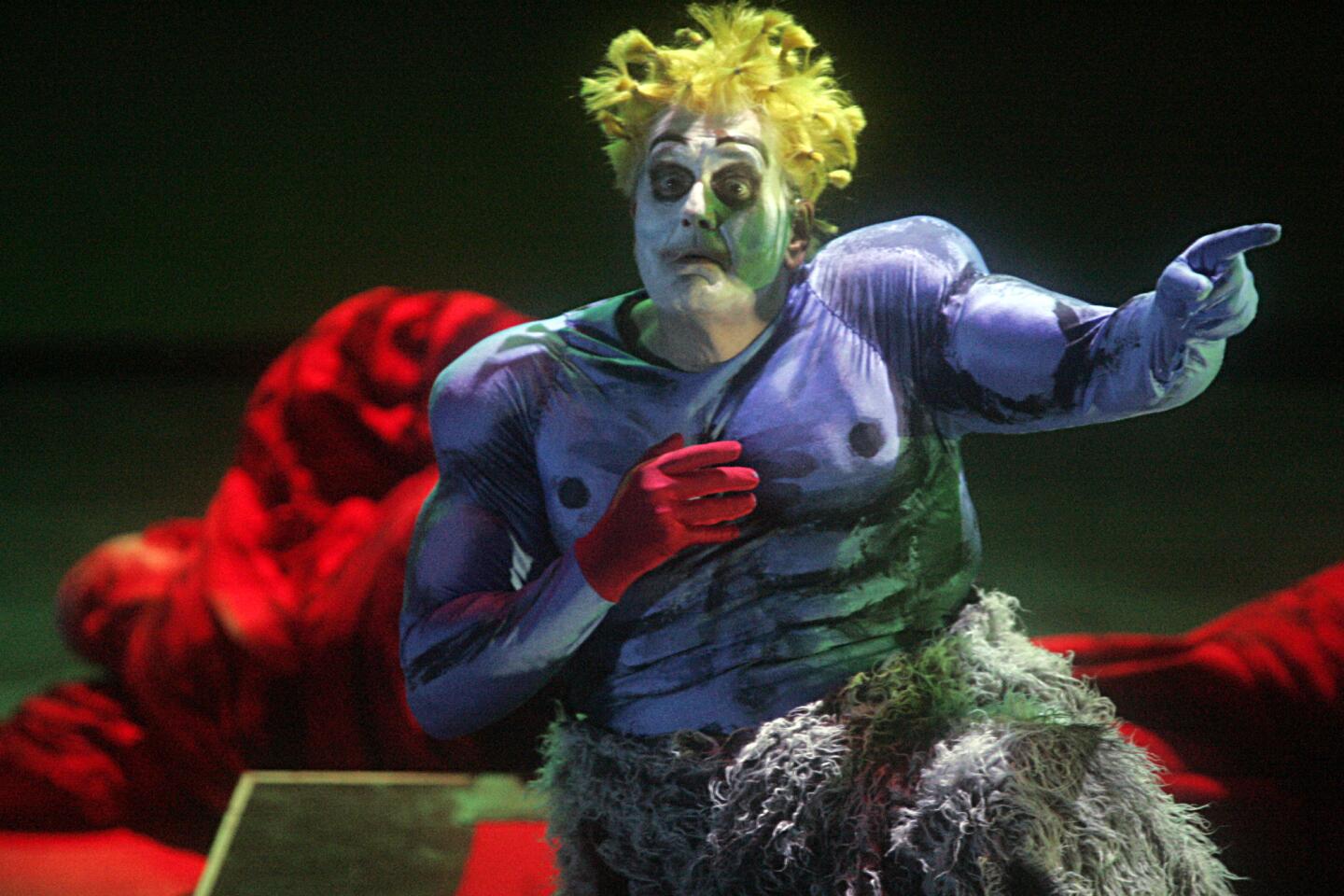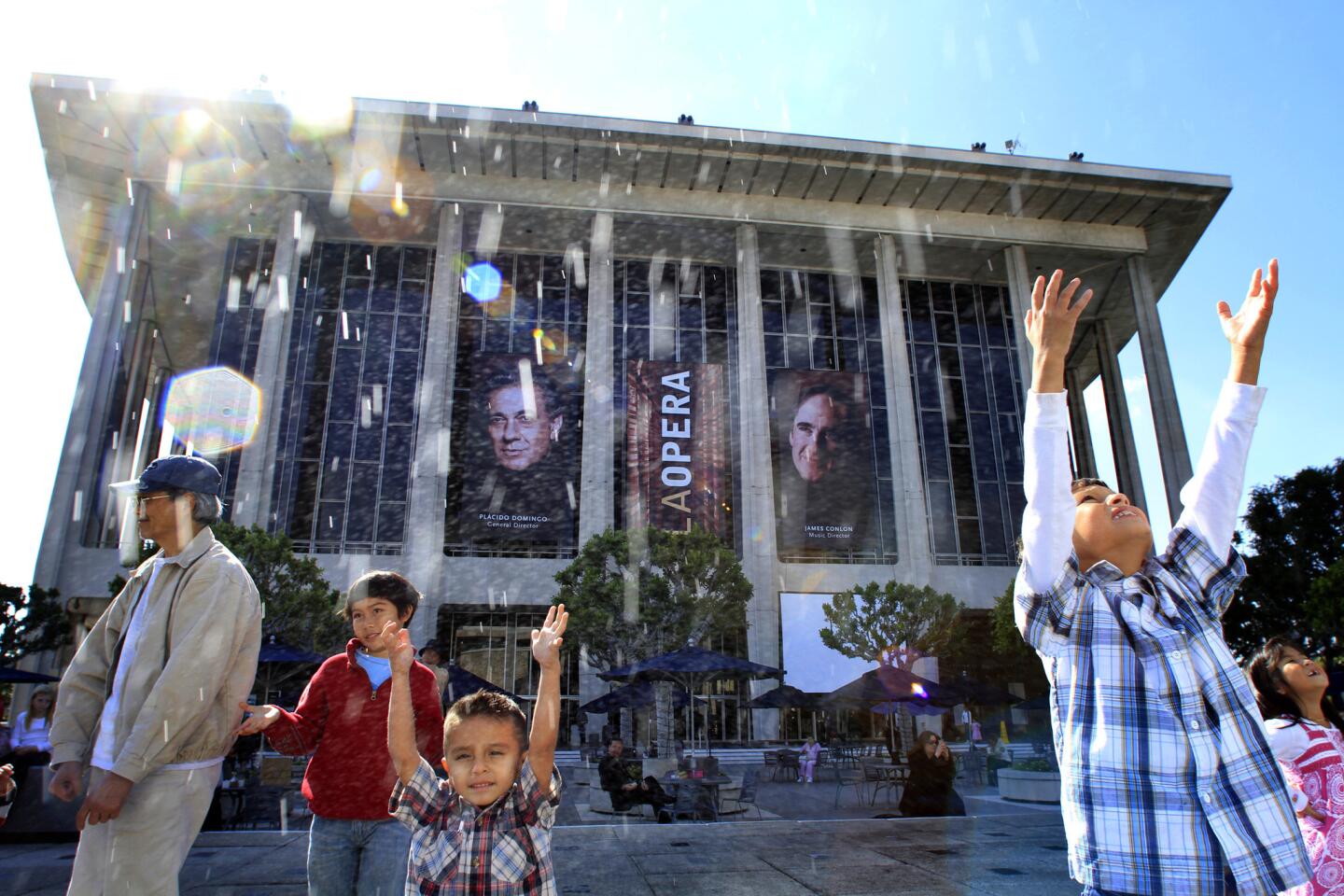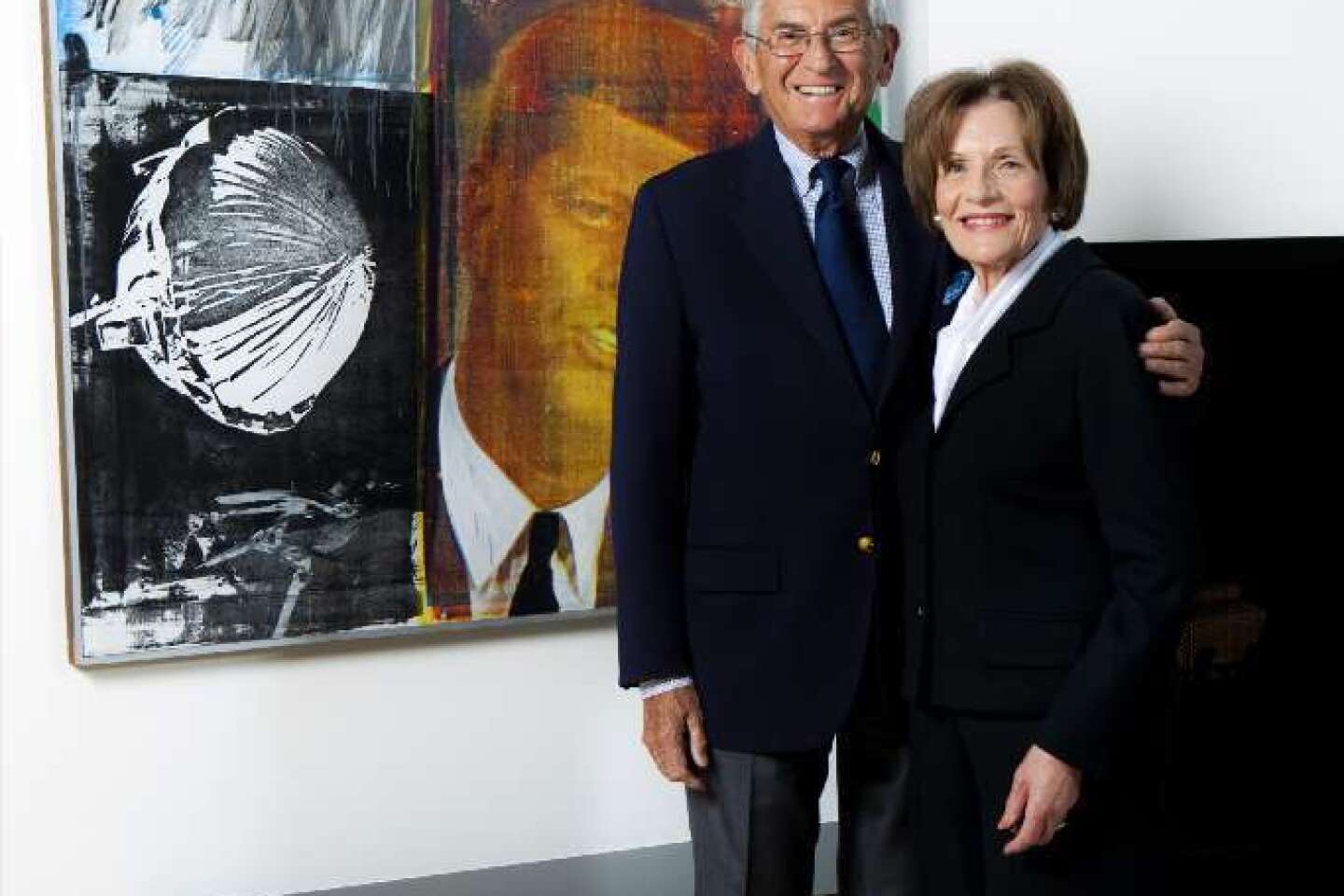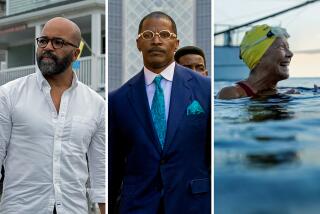Review: ‘Poems and Prayers’ lands with compelling force at Royce Hall
This review has been updated.
Mohammed Fairouz’s Symphony No. 3 “Poems and Prayers” is long, brash, overwrought, beatific — and huge. For its West Coast premiere Sunday night by UCLA’s Philharmonia, University Chorus and Chorale, along with two vocal soloists and a solo clarinet, more than 300 performers crowded the stage at Royce Hall.
Written in 2010 when the impressively prolific American composer of Palestinian descent was 25, the symphony is a young man’s extraordinary effort to say what needs to be said, feel what needs to be felt and demonstrate what needs to be demonstrated about the Israeli and Palestinian morass in the Middle East.
FOR THE RECORD:
“Poems and Prayers”: A review in the Dec. 10 Calendar section of “Poems and Prayers” in concert at UCLA misspelled the last name of concertmaster Nicole Sauder as Sauer.
If this sounds like overkill, so be it. “Poems and Prayers” may be a musical mess but the Middle East is also a mess. Statesmanship has yet to accomplish peace, and sometimes the young see what clouded older eyes no longer can. Fairouz’s underlying vision is clear. Using Aramaic, Arabic and Hebrew texts, he expresses the essence of what is easily lost in dealing with the conflicts between Arabs and Jews and what makes those conflicts so terrible.
CRITICS’ PICKS: What to watch, where to go, what to eat
These are essentially the same peoples who understand each other perhaps too well. Even as they speak Arabic and Hebrew and practice different religions, they express themselves in poetry and music and prayer in many strikingly similar ways. A composer can find a path to dialogue that escapes politicians.
The symphony, which was conducted with fervent intensity by Neal Stulberg, begins with a massive choral outpouring of the Kaddish, the Jewish prayer for the dead. In the three movements that follow, Fairouz turns to Palestinian and Israeli poets, whom he separates by choral interludes from the Kaddish call for peace “upon all of Israel” before saying Amen.
What stands out in the texts is the same dark irony found in the writings of Mahmoud Darwish, Fadwa Tuqan and Yehuda Amichai. All three poets mourn, yet seek a sliver (and they are careful never to allow more than a sliver) of renewal.
PHOTOS: Operas by Philip Glass
“Be a moon, in the sleep of lovers,” a Palestinian woman tells her dead son in Darwish’s “Lullaby.” Behind the killing, Amichai’s “Memorial Day for the War Dead,” posits only somewhat sarcastically, “behind all this perhaps some great happiness is hiding.” Fadwa understands she cannot save her Palestinian family with words and yet she cannot stopper the great beauty of her own, which become as “salt never flowering in this night.”
In “Poems and Prayers,” the orchestra, chorus and soloists act a great stylist sponge soaking up the poetry. Fairouz’s range of stylistic influences is great. Chorus and orchestra scream in modernist outrage, the chaos of bombs exploding on a bus, but Fairouz just as naturally settles into a formal fugue. The comfort of Hebrew prayer has a tinge of Leonard Bernstein’s liturgical bitter sweetness.
The second movement, a setting of “Lullaby,” is the most telling. The hyper-expressive, wailing clarinet soloist David Krakauer sounds, from one angle, like his limning Arabic lamentation; from another angle, his playing is reminiscent of klezmer. Sasha Cooke’s velvety mezzo brings to Darwish’s haunting text the quality of a Bach, an outside voice adding perspective.
The symphony is most effective when, like this, intimate. “Night Fantasy” featured more stirring solos from Cooke and from concertmaster Nicole Sauder. Fairouz is judicious in his application of sonically pummeling outpourings and they did their blunt job. Baritone David Kravitz revealed less personality in his declamatory passages throughout the long “Memorial Day” final movement, and Fairouz’s final exhortation for peace lacked originality, but his is nevertheless a voice that properly insists upon attention.
The symphony, which was recorded for a CD release, came as the culmination of a week-long series of concerts and lectures organized by the UCLA Herb Alpert School of Music titled “Listening to the Other: Mideast Musical Dialogues.”
And those dialogues were also apparent in the first half of the program, which began with Fairouz’s 10-minute 2012 clarinet concerto, “Tahrir,” an arresting tour de force for Krakauer that again implied a commonality between traditional Arabic and Jewish music, and modern Jewish music as well when the orchestra slipped into a brief Philip Glass-like groove.
Stulberg added a further curiosity to the mix, the U.S. premiere of Alexander Krein’s “Kaddish.” A 1922 Russian cantata for tenor, chorus and orchestra, it is by a forgotten Soviet composer known as the Russian Scriabin.
Krein’s mystical orchestral writing was excitingly played, but less compelling performances from tenor Ashley Faatoalia and the chorus failed to resolve the existential drama between faith and doubt that the Russian text, translated into English for this performance, implied. Then again, it is not as though we in the modern world, as the Middle East so tragically reveals, have resolved that existential drama either.
[For the record: An earlier version of this review misspelled concertmaster Nicole Sauder.]
More to Read
The biggest entertainment stories
Get our big stories about Hollywood, film, television, music, arts, culture and more right in your inbox as soon as they publish.
You may occasionally receive promotional content from the Los Angeles Times.
